No products in the cart.
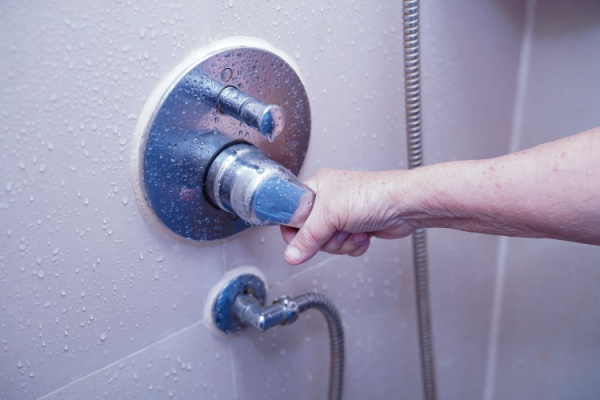
Exclusive Offer!
Stay safe 24/7 anywhere you go, around town or at home.
Stay safe 24/7 where you spend the most time. Easy to use & affordable.
Turn your smartphone into a personal safety device with this 24/7 monitoring app that’s the ultimate resource for keeping you safe.
Pair it with the Aster app to maximize ease of use and convenience. Click one button to call emergency services.
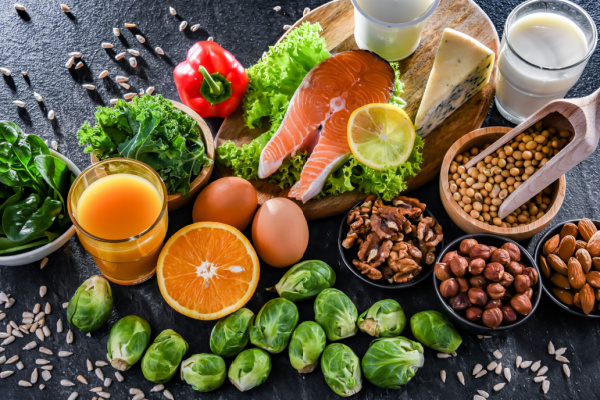
| Summary • If you or your loved one has been diagnosed with osteoporosis, it’s important to know you’re not alone. 10 million Americans are currently living with this condition. • Eating a diet rich in calcium and vitamin D can make a big difference in keeping your bones healthy. • Foods like dark leafy greens, low-fat dairy products, and fatty fish all support bone formation and improve bone density. • We suggest you limit alcohol, salt, and sugar to prevent bone breakdown and live a healthy life as you age. |
As we journey through life’s later seasons, our bodies go through certain physical and psychological changes.
These shifts often indicate that it’s time to take extra special care of ourselves. And if you’re an aging adult with osteoporosis, maintaining good health becomes even more vital.
One essential part of caring for our bodies is ensuring we consume the right foods. Eating a balanced diet of nutrient-rich foods is especially important if you want to maintain strong and healthy bones as you age.
Although you should focus on more than just good nutrition to prevent osteoporosis, the right diet can make a big difference to your bone health. Building healthy bones is important if you’re one of the 10 million Americans with this health condition.
In this article, we will discuss some foods you can eat for better bone health and the peace of mind to live comfortably during your golden years.
As you may know, osteoporosis is a condition that causes low bone mass and the breakdown of bone tissue.
Weak, soft bones are more susceptible to fractures and breaks, even without much trauma.
| Key Point: Safety is a Big Concern We understand it can be very worrying to know you have a higher risk of falling or breaking bones if you have osteoporosis. However, you can make sure you’re safe at all times with a medical alert device from LogicMark that has built-in fall detection. Keep reading to learn more about how a medical alert device can help you safely enjoy your life while living with osteoporosis. |
Although you may be prescribed medications by your doctor to prevent bone breakdown, eating a diet that encourages calcium absorption is also really important for your bones.
The older you get, the higher your calcium intake should be.
There are four main nutrients, vitamins, and minerals that you should try to include in your diet if bone health is a priority for you.
When you get these four pillars right, you’re well on your way to building stronger, healthier bones.
Our bones need calcium to remain strong and healthy and to prevent bone loss after the onset of osteoporosis.
Vitamin D is an essential part of any osteoporosis diet because it helps the body absorb calcium. If your body absorbs enough calcium, you’re on the right track to healthier bones.
Protein forms a big part of bone tissue, which means it plays an important role in keeping your bones healthy. If you’re getting enough protein in your diet, you’re helping your bones grow stronger.
Low levels of vitamin C can cause poor bone mineral density, which could weaken them and lead to fractures. Getting a good dose of vitamin C in your daily diet can help maintain strong bones.
Now that you know the key nutrients you need for bone health, let’s look at some osteoporosis superfoods you can include in your diet to help strengthen your bones.
Most veggies contain some calcium. But the best ones for a good calcium boost are dark leafy greens. Their calcium content can keep your bones healthy.
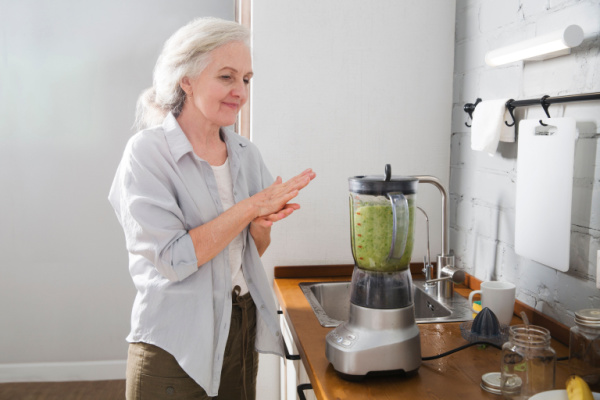
Think kale, spinach, collard greens, bok choy, and Chinese cabbage. Just one cup of cooked turnip greens equals about 20% of the calcium you should get in a day.
Your average glass of OJ may not be super calcium-rich, but many brands sell versions of this drink that have been fortified.
Fortified orange juice contains loads of calcium and vitamin D. Plus, orange juice is jam-packed with vitamin C. All these nutrients are important for building stronger bones.
Salmon, swordfish, sardines, anchovies, and mackerel are all fatty fish high in calcium and vitamin D. These are great for bone health.
Fatty fish also contain omega-3 and other fatty acids, an important part of healthy eating.
Some cereals and grains are fortified with the calcium and vitamin D you need for healthy bones. Shop for options like wheat bran, oats, and other whole-grain cereals. Snacks and breads that contain cereals are also great options.
Dairy is a very important nutrient, but sticking to low-fat options in your bone-healthy diet is a good idea. For example, one cup of plain, low-fat yogurt contains up to 300 milligrams of calcium.
You might also want to think about replacing cow’s milk with plant-based alternatives. Soy and almond milk are usually made with plenty of calcium — but be sure to check this on the label of the product you buy.
Not all fats are bad. Healthy fats are very important for a balanced diet and improved bone density. These fats can be found in olive oil, nuts, and beans.
Nut butters are a great source of protein. Almond butter, in particular, is full of bone-healthy calcium, with two tablespoons containing over 110 milligrams of this mineral.
There are some foods we recommend you try to avoid if you want to keep your bones healthy and strong.
Processed foods and beverages, such as cold meats and soft drinks, often contain additives like sugar that are considered unhealthy.
These foods can cause inflammation in your body which may affect your bone density. They also don’t contain any of the important nutrients you need for better bone health.
Alcohol can decrease how your body absorbs calcium, which may get in the way of building healthy bones.
It can also interfere with how vitamin D is metabolized in the body, which means it won’t help with the calcium absorption that you need for strong bones.
There’s nothing wrong with enjoying your favorite glass of wine in moderation from time to time, though!
A diet high in salt can actually cause your body to lose calcium rather than absorb it. We suggest you try curbing your sodium intake to less than 2,300 milligrams (one teaspoon) per day.
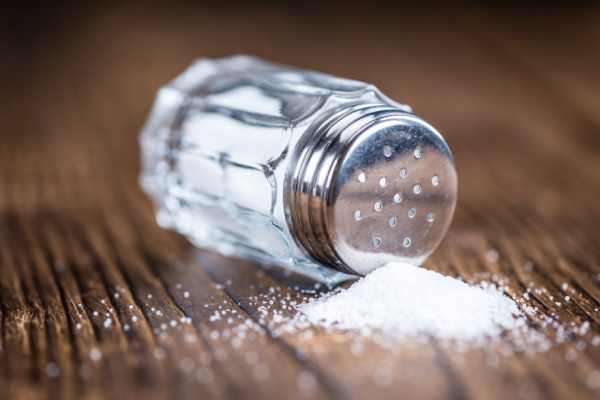
An easy way to do this is by gradually decreasing the amount of salt you use in your dishes. This lifestyle change is a great way to make sure your body is getting all the calcium you need for bone health.
Drinking lots of coffee can cause your body to lose calcium when you urinate. If your goal is to maintain strong bones, try not to drink more than three cups per day.
Eating a healthy diet isn’t the only thing we recommend for protecting your bones. Another approach to treating osteoporosis is physical activity.
We completely understand that you may be afraid of exercising because it could lead to an accident that could fracture your bones. But physical activity doesn’t have to be dangerous.
Simply going for regular walks or even the occasional slow and relaxed hike can positively impact your bone health.
Your healthcare provider may recommend that you take vitamin D and calcium supplements to help improve your bone health.
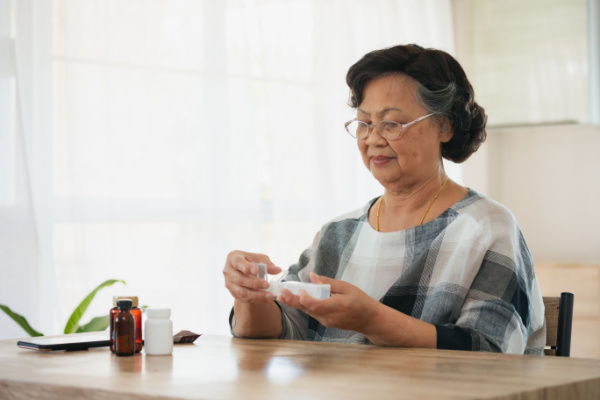
It’s a good idea to take your supplements at least two hours before or after eating to ensure the best absorption.
Although it might be unpleasant to think about, aging adults with osteoporosis have a higher risk of breaks and fractures, especially if they experience a fall.
At LogicMark, your safety is our top priority. This is why we’ve developed a range of medical alert devices to help keep you safe.
In the event of an emergency, our devices (depending on the type) can connect you or your loved one to:
With built-in fall detection on some of our devices, our technology can notify emergency services if you fall, meaning you’ll get help as soon as you need it.
Many of our safety devices can be worn on your person, giving you the comfort of knowing your device will never be far from you.
Visit our website to shop our range of medical alert devices, and help ensure your safety and freedom while living with osteoporosis.

For many aging adults, a medical alert device is a key tool in helping them age in place safely and independently. But not all devices are created equal. One essential feature that can make a major difference
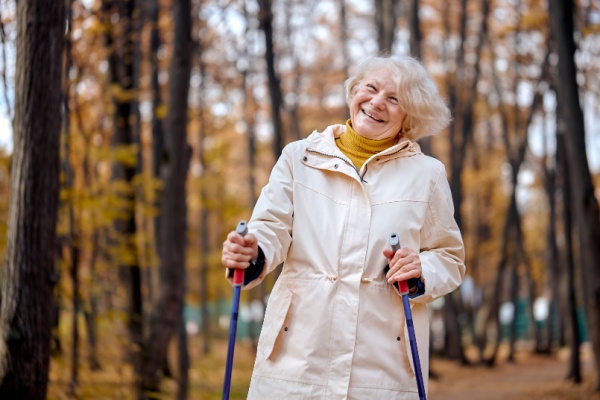
Spending time outside is one of the best ways to boost both physical and mental well-being

When a medical emergency strikes, every second counts. Whether it’s a fall, heart attack, stroke, or another critical event
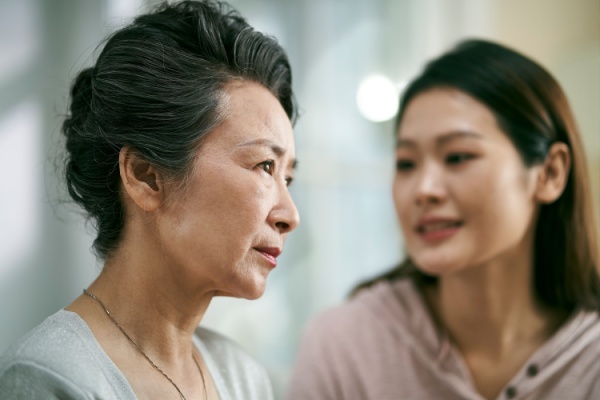
Medical alert devices can be life-saving tools for seniors, providing quick access to emergency help when needed. However, convincing older adults to adopt these devices isn’t always easy.
QUICK LINKS
RESOURCES